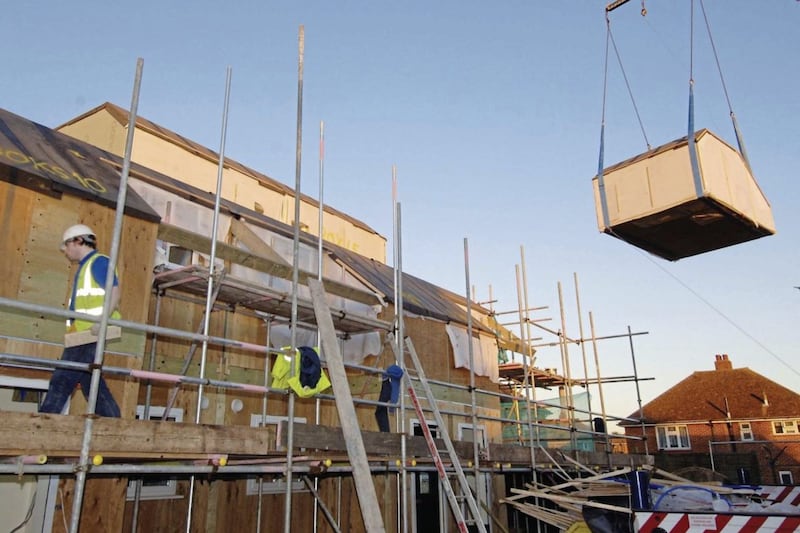THE long-held misconception that the only route into a professional well-paid career is via a university degree has been shattered with the publication of new research showing pay grades for manual jobs.
And the study shows that, in general terms, roofers earn more than pharmacists while scaffolders' salaries eclipse those of architects.
Research by the Federation of Master Builders (FMB), published ahead of National Apprenticeship Week, shows that construction apprentices will go on to earn thousands of pounds more every year than many of their university-educated counterparts.
It aims to prove there are many wide and varied career paths a school leaver without a degree can choose, and attempts to shatter the myth that apprenticeships are a way into manual jobs with little formal progression.
Brian Berry, chief executive of the FMB, said: “Money talks, and when it comes to annual salaries, a career in construction trumps many university graduate roles.
"The average university graduate earns £32,000 a year whereas your average bricky or roofer is earning £42,000 a year across the UK. Indeed in London, a bricklayer is commanding wages of up to £90,000 a year."
He added: "Pursuing a career in construction is therefore becoming an increasingly savvy move. University students graduate with an average £50,800 of debt, according to The Institute for Fiscal Studies, while apprentices pass the finish line completely debt-free.
"Not only that, apprentices earn while they learn, taking home around £17,000 a year. We are therefore calling on all parents, teachers and young people, who too-often favour academic education, to give a career in construction serious consideration.”
Small building firms across the UK were asked what they pay their tradespeople and the average annual salaries were:
• Site managers - £51,266
• Plumbers - £48,675
• Supervisors - £48,407
• Electricians - £47,265
• Civil engineering operatives - £44,253
• Steel fixers - £44,174
• Roofers - £42,303
• Bricklayers - £42,034
• Carpenters and joiners - £41,413
• Plasterers - £41,045
• Scaffolders - £40,942
• Floorers - £39,131
• Plant operatives - £38,409
• Painters and decorators - £34,587
• General construction operatives - £32,392
The UK’s university graduates earn the following average annual salaries:
• Pharmacists - £42,252
• Dental practitioners - £40,268
• Architects - £38,228
• Teachers - £37,805
• Chartered and certified accountants - £37,748
• Midwives - £36,188
• Veterinarians - £36,446
• Physiotherapists - £32,065
• Nurses - £31,867
Berry added: “The construction industry is in the midst of an acute skills crisis and we are in dire need of more young people, including women and ethnic minorities, to join us.
"Our latest research shows that more than two-thirds of construction SMEs are struggling to hire bricklayers and 63 per cent are having problems hiring carpenters. This is a stark reminder of how the government’s housing targets could be scuppered by a lack of skilled workers.
"The FMB is committed to working to improve the quality and quantity of apprenticeships because the only way we will build a sustainable skills base is by training more young people, and to a high standard.”







